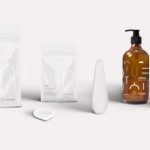Biotech Roundup: Biogen Rumors, Theranos, Electro-Drugs & More

Biogen was once again all over the biotech newswire this week. First came a positive surprise; data that could set the stage for the first-ever drug approved for spinal muscular atrophy, a rare and debilitating muscle disease. Then came the rumor mill: Companies may or may not be approaching Biogen about a sale, and Biogen may or may not be fielding offers. Just as many M&A rumors flame out as lead to deals, of course, but the news was enough to give Biogen’s stock price a big bump, and ignite chatter about what a sale of one of biotech’s heavyweights would mean, particularly for the Boston area. That story and plenty more—including a bevy of gene therapy news, the latest on the Zika virus, and a long-awaited presentation from an embattled CEO—below:
—Theranos CEO Elizabeth Holmes spoke at a conference for laboratory scientists this week in Philadelphia. She was widely expected to divulge data for the first time regarding her company’s Edison blood-testing system, whose failures have led to recalls, a two-year ban for Holmes from operating a clinical lab, and worries about patient safety. Instead, Holmes promoted a new system, MiniLab, in development. Holmes claimed it would be able to produce multiple test results from a single blood sample without shipping blood to a lab. After the talk, she refused to discuss Edison, saying she would answer questions “about the past in an appropriate forum” in the future.
—Holmes mentioned that one test to be available via MiniLab is for Zika virus infection, and that Theranos has asked the FDA for approval. Zika, meanwhile, has spread to Miami, and the Centers for Disease Control and Prevention have issued a travel warning for the city’s Wynwood neighborhood. The FDA approved a Zika test from Siemens on an emergency basis.
—GlaxoSmithKline (NYSE: GSK) said it would team with Verily Life Sciences to form Galvani Bioelectronics, with the two sides committing $ 715 million. The aim is to build implants the size of a grain of rice that treat disease by reading and altering a patient’s nerve signals. Verily is the biotech group at Google’s parent company Alphabet (NASDAQ: [[ticker:GOOG:]]).
—The fallout from the announced departure of Biogen CEO George Scangos was swift. The Wall Street Journal reported that Cambridge, MA-based Biogen (NASDAQ: BIIB) has drawn interest from the likes of Merck (NYSE: MRK) and Allergan (NYSE: AGN) as a possible takeover target. CNBC subsequently reported that Allergan isn’t interested, and Reuters followed with a report that Biogen doesn’t want to sell, but the rumors have surfaced at a time when Biogen is in significant flux. In addition to Scangos, several top executives have left over the past year. The rumors boosted Biogen’s sinking stock price nearly 10 percent.
—Biogen got a boost in clinical trials as well. The company and Carlsbad, CA, partner Ionis Pharmaceuticals (NASDAQ: IONS) stopped a Phase 3 trial of spinal muscular atrophy drug nusinersen early because it was clearly helping improve the motor function of patients compared to a placebo. As a result, Biogen will buy the rights to nusinersen and prepare to ask regulators for marketing approval. SMA has no approved treatments.
—Drug price news: While drug-purchasing agent CVS Health said it would bar several high-priced products from its menu of choices, including the leading prostate cancer treatment enzalutamide (Xtandi), it emerged that GSK is pricing gene therapy Strimvelis at $ 665,000 for a single dose, as STAT reports. Strimvelis is a treatment for severe combined immune deficiency, commonly known as “bubble boy” disease.
—Gene therapy news: After investing in Bamboo Therapeutics and its Duchenne muscular dystrophy treatment earlier this year, Pfizer bought the Chapel Hill, NC-based biotech outright on Monday for $ 150 million up front, with potentially another $ 495 million later. Bamboo was formed by UNC School of Medicine gene therapy pioneer Jude Samulski. His Chatham Therapeutics was acquired by Baxter International in 2014.
—Speaking of Samulski, Shire (NASDAQ: SHPG), of Dublin and Lexington, MA, scrapped BAX 335, a gene therapy for hemophilia B that Shire inherited by acquiring Baxalta. BAX 335, which originated at Samulski’s Chatham, was once the most advanced hemophilia gene therapy in clinical testing.
— Cambridge-based Avrobio raised $ 25 million from Atlas Venture, Clarus, and SV Life Science. Along with Bluebird Bio (NASDAQ:BLUE) and U.K. startup Orchard Therapeutics, Avrobio is one of the few companies advancing an “ex vivo” gene therapy approach, which involves harvesting a patient’s own stem cells outside the body.
—Editas Medicine (NASDAQ:EDIT) of Cambridge has licensed CRISPR-Cas9 gene editing work from Massachusetts General Hospital that aims to make more precise cuts in the targeted DNA. Published in January, the technology comes from the lab of Keith Joung, who is an Editas cofounder.
—Meanwhile, scientists from San Diego-based Synthetic Genomics and the J. Craig Venter Institute said they have created a yeast-based method that uses CRISPR-Cas9 to edit bacterial genomes.
—Myriad Genetics (NASDAQ: [[ticker:[[MYGN]]) of Salt Lake City will pay $ 225 million upfront to acquire Assurex Health, a Mason, OH-based maker of genetic tests to evaluate a patient’s suitability for psychiatric medicines. Myriad could pay $ 185 million more in milestones.
—Seattle Genetics (NASDAQ: [[ticker:[[SGEN]]) and its partner Takeda Pharmaceutical said they would seek FDA approval next year for brentuximab vedotin (Adcetris) to treat cutaneous T-cell lymphoma, based on positive Phase 3 results. Adcetris is already approved for Hodgkin lymphoma and systemic anaplastic large cell lymphoma.
—Immunotherapy news: Bristol-Myers Squibb’s (NASDAQ: BMY) immunotherapy drug nivolumab (Opdivo) failed a Phase 3 trial in previously untreated patients with non-small cell lung cancer. Shares of Bristol immediately fell 16 percent on the news, while shares of Merck—whose rival drug, pembrolizumab (Keytruda), is also being developed for untreated lung cancer patients—surged more than 11 percent…Menlo Park, CA-based Adicet Bio struck a five-year deal with Regeneron Pharmaceuticals (NASDAQ: REGN) to make “off the shelf” T cell treatments for various cancers. Regeneron is paying $ 25 million upfront. Adicet raised $ 51 million earlier this year…Amgen (NASDAQ: AMGN) of Thousand Oaks, CA, is paying $ 40 million immediately for rights to ADXS-NEO, a preclinical cancer treatment from Princeton, NJ-based Advaxis (NASDAQ: ADXS). Amgen will also buy $ 25 million in Advaxis stock…The FDA says Adaptimmune (NASDAQ: ADAP) must answer more questions before it begins a key trial of its T cell treatment for liposarcoma, a cancer that grows in the connective tissues.
—Shares of Sangamo Biosciences (NASDAQ: SGMO) sank about 30 percent due to “delays in multiple…gene editing programs and concerns about management execution capability,” wrote Jefferies analyst Gena Wang in a note to investors. In an earnings release Wednesday, for instance, Sangamo said the first trial for its treatment for the rare disease Mucopolysaccharidosis type I has been delayed until next year.
—Hearing loss startup Decibel Therapeutics became the first Boston-area biotech to open a headquarters in the Fenway neighborhood. The Boston Globe has more here.
—Momenta Pharmaceuticals (NASDAQ: MNTA) stopped a mid-stage pancreatic cancer drug necuparanib early because it didn’t show “a sufficient level of efficacy.” Shares fell about 5 percent.
Alex Lash and Bruce V. Bigelow contributed to this report
(58)













